All you need about the sweden heavy metal band 🕯️Ghost🕯️ & 🕯️Tobias Forge🕯️ Papa Emeritus fanart 🕯️NSFW sometimes🕯️ 📍Italy (side blog ) 🕯️FOLLOW FOR MORE🕯️
Don't wanna be here? Send us removal request.
Text
🕯️Lachryma ~ Ghost🕯️
#lachryma#ghost#papa emeritus v#papa perpetua v#papa v perpetua#tobias forge#ghouls#goulette#ghost bc#skeleta#skeletour#papa v#clergy
32 notes
·
View notes
Text
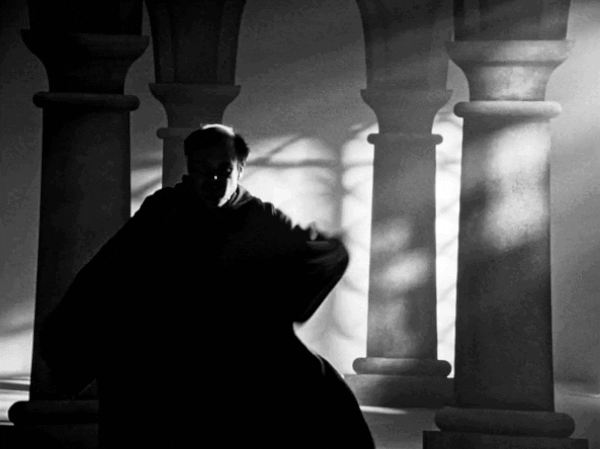

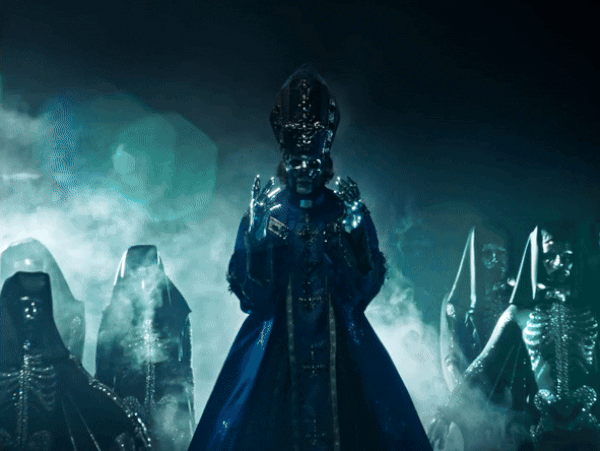

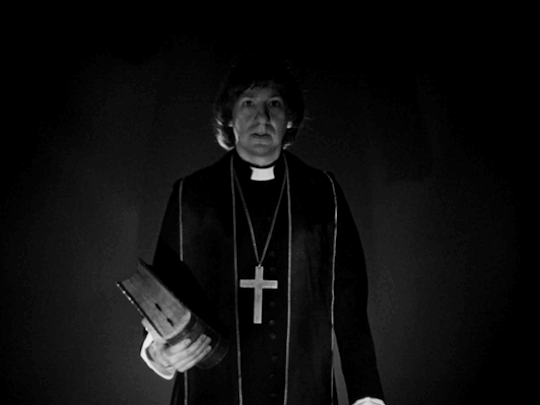
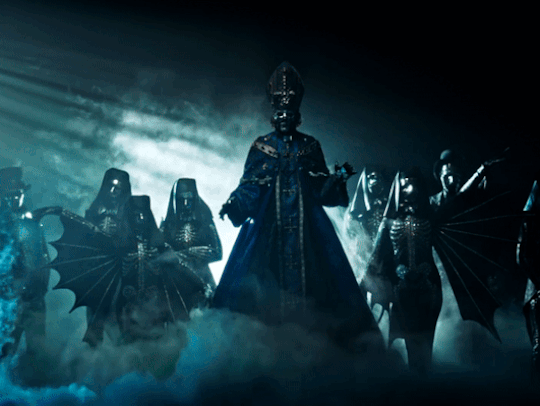
Blasphemy. Heresy. Save me.
Ghost - Satanized (2025)
344 notes
·
View notes
Text
Ghost Tour and Album release timelines Infopost
I saw a lot of curiosity and also really bad takes about the upcoming album release in relation to the tour starting soon: „he’s decepting us by selling tickets and we don’t even have an album yet“, „it’s worrying that the album hasn’t even been released!“ etc, and I couldn’t take it anymore. So have a very short overview on how Ghost handled these things in the past and some speculations, brought to you by my autistic historian ass
Opus Popus as the first album doesn’t count here Update: see below, so I’ll ignore it. Just like the EPs (even Popestar, yes)
Infestissumam
Papa II was introduced by Papa I on 15.12.2012 in Linköping
there we also got the first songs (Secular Haze, Marionette cover) played live,
SH single was released a few days (20.12.2012) later on their Website
Papa II Tour start: 23.02.2012 (if you don’t count the bit in december and that P3 Guld Awards thing)
Album Release Date: 10.04.2013
time between tour and album: 1,5 months (46 days)
Meliora
Papa III premiered in Linköping on 03.06.2015 (with the wrong facemask), which also started the tour
first single (Cirice) released on 30.05.2015
Album Release Date: 21.08.2015
time between tour and album: 2,5 months (79 days)
Prequelle (my beloved)
we meet the Cardinal on 06.04.2018 in a Chapter (and some small concerts) before tour kicks off properly:
Tour start: 05.05.2018
first single (Rats) was released on 13.04.2018 (followed by Dance Macabre on 18.05.2018)
notably there's a bit of a break after the pre-release tour (ROTR), the release of the album and then the „proper“ tour (Pale Tour)
Album Release Date: 01.06.2018
time between tour and album: just under 1 month (27 days)
Impera
not counting the Ascension on 03.03.2020 and Sympathy for the Devil (my beloved) on 22.01.2021);
we get 3! singles before the album releases (Hunter’s Moon (super early bc of the movie), CMLS, Twenties)
Preimperatour started on 25.01.2022 (again with a break between the pre-release tour, release and post-release tour)
Album Release Day: 11.03.2022
time between tour and album: 1,5 months (45 days)
Conclusion:
As you see, Ghost always go on tour first and THEN release the album with about 1,5 months inbetween. Many songs are first played live and then we get to hear the studio versions. Recently we even got dedicated „pre-tours“ (Rats on the Road, Pre-Imperatour) to hype us up. So there is no need to be worried, or even accuse him of being a scammer or whatever. It’s literally the normal modus operandi!
My guess for this Album/Tour (this might age terribly with the most recent website update): I’d assume we get a single later this month/ in march at the latest, and, if I had to guess, the album comes out after the Euro leg of the Redacted tour in late May (1 month passed plus theres a break again, like there was for ROTR/Pale Tour and Pre-/Imperatour)
Update
Since it's been pointed out that not including Opus isn't fair, I shall add that era. I didn't include it, because first albums always have a bit of their own rules and there's a whole lot of issues coming with releasing your first baby - plus I was trying to make a point based on recency (4 of the last 5 albums) etc. plus the lack of money & recognition didn't allow for a real Tour for quite a while. ANYWAY, here's it:
Opus Eponymous:
12.03.2010 they uploaded the Demo tape to MySpace and got a LOT of attention immediately (because it's a frickin' banger)
the album itself was released on 18.10.2010 officially
they played their first gig at Hammer of Doom in Würzburg of all places on 23.10.2010 - yes, after the album release
it wasn't really a tour in that sense; they went on to play some gigs wherever they could, then supported other bands (Paradise Lost in early 2011), the first thing you could call a real tour was Defenders of the Faith III with Trivium, In Flames (my beloveds, check out In Flames if you haven't!) and Rise to Remain in late 2011 - not a real Headliner Solo tour, though, either
Sources: Setlist.fm, wikipedia, my memory, really
298 notes
·
View notes
Text
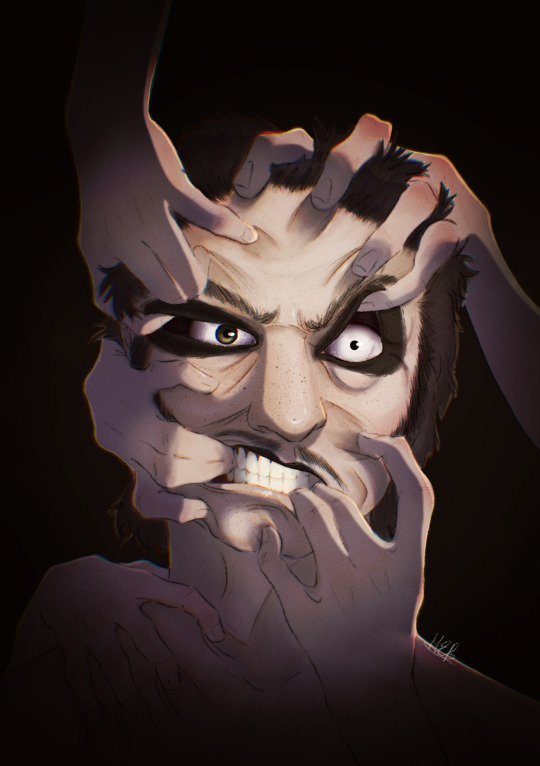
This was originally gonna be Papa Copia but I felt it fit him better as cardinal idk :))
373 notes
·
View notes
Text
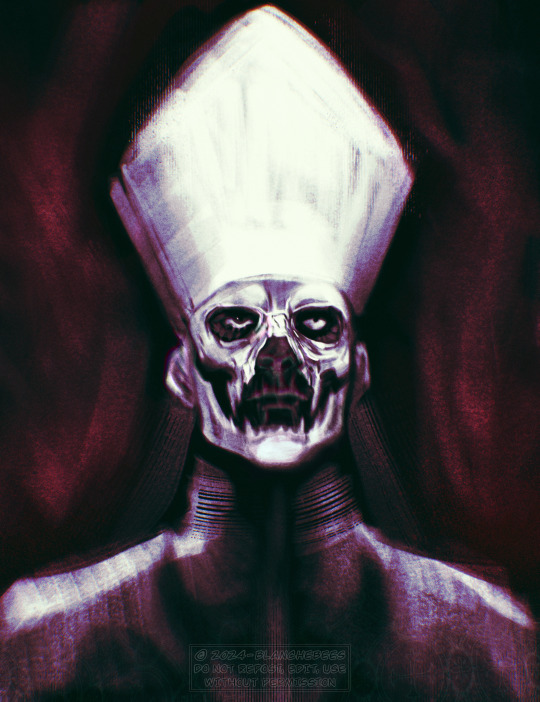
Papa V test, hoping for a movable jaw kind of situation
Tip jar
2K notes
·
View notes
Text

i haven't been able to look at this picture for too long because i keep blushing
398 notes
·
View notes
Text
Damn.


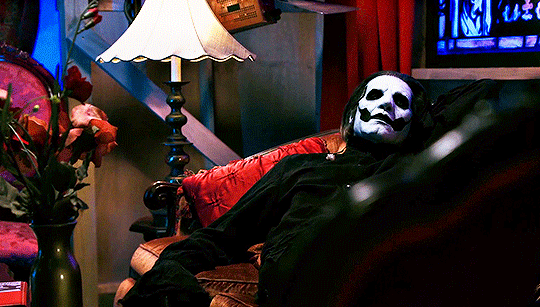


lounging there like a greek youngling during symposium
3K notes
·
View notes
Text

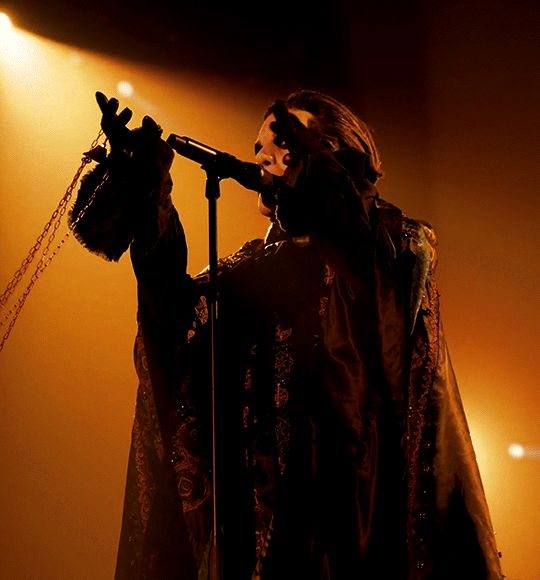
Con Clavi Con Dio Rite Here Rite Now (2024)
2K notes
·
View notes
Text

Please help me find credit for this pic cause gah DAYUM
358 notes
·
View notes
Text

Visions Magazine with Tobias Forge on the idea behind Rite Here Rite Now, the importance of soundtracks in general and how he distinguishes between himself and his characters (Visions Magazine issue nr. 377, 08/2024)
Full translation of the included interview by me below the cut - buckle up, this is a long post! There are no spoilers for RHRN in this.
Markus Hockenbrink: Tobias, have you ever watched the movie Metallica: Though The Never?
Tobias Forge: Yes, once, when it had just come out. The topic Metallica came up when we were taking care of the funding for [RHRN]. Every larger production company – and I have to emphasise here that this was before Taylor Swift’s The Eras Tour and her extremely successful movie about it – voiced a lot of concern back then whether anybody would still be interested in concert movies. I had to explain time and again that my movie wouldn’t be a typical concert movie, to which I was asked several times: “Oh, so something like Through The Never?” I had to deny that again. We tell a story in our movie most of our fans are already familiar with. So it’s not an entirely new concept, which is already the first distinction from Through The Never. If you only consider that there is a concert part and a feature film part, then those two movies are probably similar. But that also applies to La La Land.
M. Hockenbrink: You describe your movie as a combination of Kiss’ Alive II, Ralph Bakshi cartoons and silent film horror. Is that a kind of childhood dream that comes true there?
T. Forge: Definitely. For as long as I’ve been interested in music, I’ve also been interested in film and television. Working in film could have also been a career option for me, but I always got the rather annoying impression that one would have to go to film school to really find a place in that field. School was never my strong suit, I see myself more as a autodidact in that regard. That I had the opportunity to work on/contribute to my own movie as a sorcerer’s apprentice of sorts is a real privilege. That is a dream come true but it is also something I can picture more of in the future. Next time maybe without the band.
M. Hockenbrink: Can you remember a specific moment in your life when you realised that you were especially drawn to topics that are slightly morbid and unsettling?
T. Forge: I think that due to my family I came in contact with vastly different kinds of pop culture from a very young age. In more traditional families with more conservative parents and siblings of similar ages, you only really start with your respective journey to find yourself in your teens. Then there are often restrictions that are meant to distract from those darker influences. My parents on the other hand are very liberal and my brother was 13 years older than me. There were never limits or censorship for me. My childhood didn’t go by without rules entirely, but I was always allowed to watch or listen to what my brother was also watching or listening to. That was I was exposed to all kinds of teenage culture from the beginning. Sure, I also liked Pippi Longstocking and He-Man. But that was always combined with the French arthouse films my mother liked to watch or the horror flicks my brother was into. I can’t recall a particularly striking horror film experience, but I still remember the first time it dawned on me that movies don’t just exist, they’re made.
M. Hockenbrink: How do you mean?
T. Forge: My father worked as a documentary maker in television. His job was to connect the video track and the sound track in a fitting way for different film production. I saw Jaws on television with him as a small child. It’s important to note that my father is not somebody who can just quietly enjoy films but somebody who likes to butt in. Thanks to him I already had a kind of epiphany during the introduction. He said: “Look closely! There is nothing to see in this underwater scenery except the algae. Technically completely harmless. But it only takes the ominous music to turn the whole scene into pure horror already!” And I thought: Wow! That’s true! Later in the movie you only have to hear that music and it immediately puts you on edge, even when there’s nobody in the water right now. They don’t even have to show the shark anymore. I found it fascinating that the [viewer’s] senses/perception could be manipulated like that. Ever since I’ve been viewing films with different eyes. I can still allow myself to dive into the story but at the same time I see the practical aspect to film-making.
M. Hockenbrink: I had a similar feeling during the introduction of Shining: technically a cozy road trip in the mountains, but a pure nightmare with the music.
T. Forge: I’m with you on that. Shining is one of the best movies of all time. And funnily enough, only the intro sequence was actually shot in nature. All the other scenes, even if they were outside, were filmed in the studio. Exactly that kind of craftsmanship is what I find inspiring.
M. Hockenbrink: With that in mind, what makes a good soundtrack in your opinion?
T. Forge: We already talked about Jaws, but I can think of Eyes Wide Shut as another example. There is that short piano theme that comes up again and again, incredibly effective. A good soundtrack needs to deliver something that you don’t have to be able to see to perceive its existence. Sure, there are no monsters in Eyes Wide Shut, aside from the main character’s jealousy as an internal monster maybe. But just like the music in Jaws, the theme from Eyes Wide Shut symbolises something that doesn’t have to be shown. The sound is enough. That is also a commonly used effect in adventure and love movies. You just put in a short vignette to describe the love between two characters. In Star Wars, Luke Skywalker also has his own theme, that is used every time when things get emotional and you’re supposed to feel that hope. You’ve got to pay attention to that. Jason Voorhees from Friday the 13th also has a personal theme to recognise him by. Every time you hear it you immediately know “Oh shit, he’s nearby!”
M. Hockenbrink: What about soundtracks that are made up of songs?
T. Forge: With that, I’m especially thinking of Silence of the Lambs. In the scene where Buffalo Bill dresses up as a woman and dances around his basement, a song called Goodbye Horses by Q Lazzarus is playing. I have no idea how the artist felt that since the song is now so irrevocably connected to that awful scene, that you can’t listen to it anymore without thinking of it.
M. Hockenbrink: Do you feel like soundtrack work is more appreciated now than it used to be?
T. Forge: I think that it’s definitely gained importance over the last 40 years. The right song on the right soundtrack can be incredibly powerful. Just think of Stranger Things. Obviously, Metallica and Kate Bush already had successful careers before, but what happened with Master of Puppets and Running Up That Hill following the series was something else entirely. The songs were associated so strongly with the narrative, that way more people listened to them than before. Of course I’m a strong advocate for live music but I also realised that nothing is as strong as the connection of visuals and music. That is still the most powerful way to appeal to a deeper emotion through the association.
M. Hockenbrink: More or less a shortcut to the subconscious.
T. Forge: Exactly. But you can’t be cynical about that either. If I was an A&R person at a big label, I would probably also say: “You just have to find a spot for one of your songs on a popular soundtrack, then you’ll have made it!” That’s really how it is. But when you view it from an artistic perspective, when you want to reach people a certain way or bring across a certain message or a certain feeling, the combination of visuals and sound can’t be topped.
M. Hockenbrink: It especially lends itself to an immersive experience, as seems to be in the foreground of [RHRN]. An album by Black Sabbath or Iron Maiden ends at some point, then you’re gone from that metal world again. With Ghost, however, you get the feeling that the illusion just keeps on going, across several media. Did you plan the Ghost mythology like this from the start?
T. Forge: In part. When I started with the band, I only wanted to make a standalone album. The concept was supposed to be interesting and practical, but I wasn’t planning for Ghost to be a huge thing. The style I pictured has its own limits in my opinion. The band was supposed to function a certain way and appeal to a certain target audience. The concert was supposed to be a theatrical performance in the literal sense. Ghost were never supposed to perform in a normal rock club nor go on tour. I wanted more of a kind of Vaudeville show in a proper plushy theatre. The band was supposed to be as anonymous as the actors that stand on stage and play, say, Faust. The idea behind this was: Those who don’t know who the people are on stage are more ready to follow the story. Then we would perform three days back-to-back in select cities. Berlin, Amsterdam, London. Just like Diamanda Galás who can more likely be found at a culture festival than in a rock shack. But things turned out differently in the end, and I had to kiss my original ideas goodbye again, so to speak.
M. Hockenbrink: Why?
T. Forge: After the success of our debut album, it became clear to me that more conventional concerts were going to be demanded of us and that I could only really say yes or no. This problem became worse after our shift to a bigger label. It became clear that my vision of telling stories clashed with the live sector and requirements for success more and more. At a certain point anonymity doesn’t work anymore and I had to make peace with that in the end. I originally didn’t even want to do interviews but that’s obviously tricky when you want to sell records. The question that I constantly ask myself since is how I can do those things best in the Ghost way without denying the original Vaudeville spirit.
M. Hockenbrink: In his autobiography Golf Monster, Alice Cooper talks about himself in third person a lot when he is talking about his character. Are you feeling similarly at this point?
T. Forge: At least I can definitely see where he’s coming from. There is a difference between the person Vincent Furnier and the character Alice Cooper. I believe that he was on the verge of completely transforming into Alice Cooper at one point – to the point where one has to decide where they want to live or die. In the end he decided to remain Vincent Furnier and only become Alice Cooper for work, on stage. So far I’ve been fortunate to combine the two pretty well, but had I started Ghost ten years earlier in my life, it would have probably affected me similarly to how Alice Cooper did with Vincent Furnier in his time. But with my humble experience as an actor I have to say: every character you play becomes a part of you to a certain extent. You have to find certain qualities – good or bad – within yourself to bring such a character to life. I think that most actors only play one or two roles throughout their life that they then end up being known for. The different characters that I’ve portrayed on stage are not only very similar but actually also a part of me. Fortunately a part of me that I don’t want to deal with all day long.
M. Hockenbrink: Too cynical and antisocial?
T. Forge: Cardinal Copia or Cardi, as I like to call him, is not an all-around cool person, but that makes him so fun to play for me. He is half Freddie Mercury and half Jacques Clouseau. Kind of clumsy, kind of silly, kind of stupid. The kind of guy who trips over his own feet but catches himself elegantly. That’s also me in a way, but not just. And I think that’s easier to embody than a daredevil hero character who can rival anyone and gets all the ladies. When somebody plays only those characters their whole life, it will probably really go to their head. Especially when there are drugs involved on top of that.
M. Hockenbrink: With all that fondness of doom that can be found with Ghost, that universe also has something humorous about it, benign even. It that an intentionally included contradiction?
T. Forge: Yes, and it is also very important to me that it comes across like that. For me that also has something to do with the evolution of metal. Originally it was mostly a phenomenon connected to the youth, nowadays the musicians and their fans are close to retiring. That brings a certain maturity. Even the Norwegian black metal musicians who were super pissed and extreme 30 years ago and were only made of hate and aggression are well-adjusted people now. Bearded fathers and grandfathers with a pleasant view on life that make others laugh. I see a certain duality there. Everything that has something to do with goth, with metal, with horror, appears dark, dismal and hostile at first. But in reality, that can all be extremely life-affirming and a source of great joy for many people. So pretty much the opposite.
M. Hockenbrink: Speaking of horror: could you imagine making a real feature film some day?
T. Forge: Yes, I would love that. I’m well aware that it’s not going to be easy to make what I’m picturing a reality, just because I’ve done directing once with [RHRN] now. The creative liberty I got to enjoy there also was due to the fact that I funded the movie myself. So nobody was meddling with it. That is likely completely different when you work on behalf of a big studio, because we are talking about different sums here. If I only go off my dreams, I would name two points of reference. One is Shining, the other Bram Stoker’s Dracula by Francis Ford Coppola. I would like to make a movie that’s only shot in a studio, with elaborate sets, matte painting and all that. No outside shots, no special effects, no green screen. And no actors who only gets to see what they were actually doing after the fact. Proper old-school. The way movies are actually meant to look.
214 notes
·
View notes
Text
🕯️RHRN spoilers🕯️
🕯️Copia on that damn sofa, 2023
body and blood, 666x666 cm
Tobias Forge in Rite Here Rite Now movie
#papa emeritus#tobias forge#clergy#ghost#ghost band#ghost bc#cardi#cardinal copia#papa emeritus iv#frater imperator#rite here rite now#copia on sofa
322 notes
·
View notes



























